College of Agriculture introduces 14 new faculty members
Spring 2025
Fernanda da Cunha, Research Assistant Faculty for OneHealth, Agricultural and Biological Engineering
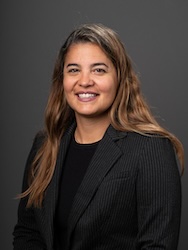
Fernanda da Cunha has been appointed to the Department of Agricultural and Biological Engineering at Purdue University. She holds a bachelor’s, master’s and Ph.D. in chemical engineering from Federal University of São Carlos in Brazil, with her graduate work focused on biochemical engineering, particularly the research and development of chemical processes. Her research was conducted in collaboration with the Brazilian Agricultural Research Corporation. Fernanda has been involved in Purdue’s agricultural and biological engineering department since 2020 in various roles. She returned to the Laboratory of Renewable Resources Engineering as a postdoctoral researcher and was later promoted to research scientist in 2022. Throughout her time at Purdue, she has mentored undergraduate and graduate students in research projects within the field of bioengineering. Her research interests include enhancing downstream bioprocessing of genetic medicine formulations, mammalian cell and tissue culture for the detection of viral and bacterial pathogens and the production of high value bioproducts from agricultural wastes. Outside of her academic work, Fernanda loves spending time with her family and pets—a dog and bunny—as well as cooking and traveling during holidays.
Julie Mahoney, Clinical Assistant Professor of Online Programs, Animal Sciences
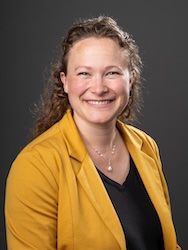
Julie Mahoney has joined the Department of Animal Sciences from United Animal Health, where she served as a staff research scientist leading a team responsible for multi-species nutritional health research activities. Her research and development efforts focused on swine functional nutrition across production phases, refining research models and processes and contributing to technical communications. Mahoney earned her Ph.D. in animal sciences with a specialization in swine nutrition and physiology from Purdue University. She also holds a bachelor’s from Michigan State University and master’s from Kansas State University, both in animal sciences. At Purdue, Mahoney will develop and teach both in-person and online animal science courses, broadening access for high school students, undergraduates, and professionals seeking continuing education opportunities. Passionate about animal science and committed to student success, she looks forward to using her industry experience and understanding of career pathways in animal science to help learners reach their academic and professional goals. Outside of work, Mahoney enjoys coffee dates with her husband, crafting and reading with her children, traveling, photography, gardening and cooking.
Rubab Saher, Research Assistant Professor of Digital Agriculture, Forestry and Natural Resources
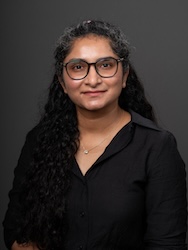
Rubab Saher has joined the Department of Forestry and Natural Resources with a background that bridges civil engineering, water systems and environmental modeling. Originally trained in civil engineering from Mehran University of Engineering and Technology, Pakistan, her focus shifted to water resources after experiencing an extreme flood, followed closely by a deadly heatwave, in Pakistan. This inspired her to pursue a master’s in water resources from U.S. Pakistan Center for Advanced Studies in Water and a Ph.D. in civil and environmental engineering from the University of Nevada-Las Vegas, where she used remote sensing and radiation physics to optimize irrigation systems. Her postdoctoral work at the Desert Research Institute refined irrigation models to higher spatial resolution, while her second postdoctoral position at the University of Arizona expanded her focus to groundwater-dependent ecosystems, utilizing satellite data. Saher has also explored the role of reflective surfaces in urban heat mitigation. Her current research spans three areas: improving urban irrigation under heat stress, detecting and monitoring groundwater-dependent ecosystems with remote sensing, and evaluating reflective roof surfaces on urban surface temperatures. Saher’s interdisciplinary work blends geospatial analysis, environmental modeling, and technological innovation, making Purdue’s digital forestry initiative an ideal match. Beyond the workplace, she enjoys calming walks, experimenting with latte art, restoring plants, maintaining a small herb garden and cooking.
Fall 2025
Carolyn Burt, Clinical Assistant Professor of Teaching and Learning, Forestry and Natural Resources
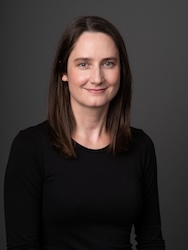
Carolyn Burt has joined the Department of Forestry and Natural Resources from Colorado State University, where she served as a researcher in the Department of Fish, Wildlife and Conservation Biology. During her time at Colorado State University, she coordinated a transdisciplinary research team focused on advancing sustainable night skies. In this role, Burt collaborated with key stakeholders across federal agencies, as well as local and non-governmental organizations—all leaders in the movement to reduce artificial light pollution. Her work also emphasized outreach and education, both on campus and in the community, through public seminar series, workshops and the development of K-12 curricula. She previously was an instructor and academic advisor in the Department of Fish, Wildlife and Conservation Biology. Burt earned her bachelor’s in biology from Indiana University and completed her Ph.D. in biology from the University of Oklahoma. Her research delves into the overuse and expansion of light pollution, examining how complex social, economic and political factors have made it a widespread issue that harms both wildlife and human well-being. At Purdue, she looks forward to contributing to the university’s mission of accessible, impactful education and community engagement, while making meaningful connections with students both in the classroom and through research. Outside of her professional life, Burt is an avid runner and enjoys spending time with her family, whether they’re birding, walking their dogs, or exploring new places.
Clément P. Bataille, Associate Professor and Richard and Suzanne Belcher Endowed Chair in Environmental Sustainability, Forestry and Natural Resources
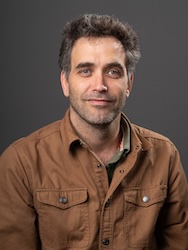
Clément P. Bataille, a recent addition to the Department of Forestry and Natural Resources, came from the University of Ottawa, where he served as an associate professor in the Department of Earth and Environmental Sciences with a cross-appointment in the Department of Biology. There, he taught courses in environmental sciences, isotope geochemistry and the carbon cycle while advancing his internationally recognized research. Bataille also directed the Jan Veizer Stable Isotope Core Facility, a state-of-the-art and internationally recognized platform for stable isotope analysis. With a bachelor’s and master’s in environmental engineering and agronomy from the Institut National Polytechnique de Toulouse, a master’s in environmental sciences from the Université Paul Sabatier and a Ph.D. in geology and geophysics from the University of Utah, his work uses stable isotopes to develop solutions for a variety of sustainability challenges—from conserving migratory species and managing pest populations to enhancing the sustainability of northern riverine fisheries and monitoring biogeochemical cycles at both regional and global scales. His research also uses the past to inform the future, working with fossils from museum collections to investigate the climatic or anthropogenic drivers of extinction in iconic species, such as mammoths, horses or mastodons. As the Belcher Chair, Bataille will lead an externally funded research program, mentor graduate students and postdoctoral research, partner with stakeholders to address pressing environmental challenges and foster interdisciplinary collaborations across the department. Outside of science, Bataille enjoys singing and playing music with my family, gardening, beekeeping, leading scout camps, bicycling and watching sports, including Boilermaker basketball.
Ellen Van Loo, Associate Professor, Agricultural Economics
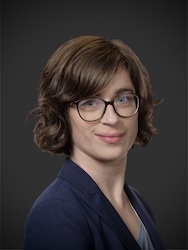
Ellen Van Loo has joined the Department of Agricultural Economics from Wageningen University and Research in the Netherlands, where she was an associate professor in the Marketing and Consumer Behavior Group. Van Loo’s research focuses on consumer food choice behavior and its role in promoting healthy and sustainable diets. In particular, she examines how policy, marketing and retail contexts influence consumer decision-making processes. While food labeling remains a key interest, her recent research emphasizes the need for more actionable interventions—particularly within digital platforms like online grocery and meal ordering services—to drive behavioral change toward healthier, more sustainable food choices. In her spare time, she enjoys spending time outdoors with her family, whether cycling, walking or exploring new places.
Jinsu Hong, Assistant Professor of Non-Ruminant Nutrition and Nutrient Management, Animal Sciences
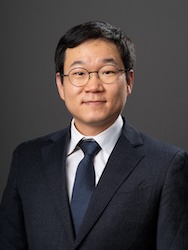
Jinsu Hong came to the Department of Animal Sciences with a Ph.D. in agricultural biotechnology, specializing in swine nutrition and management, from Seoul National University in Seoul, Korea. He also holds a bachelor’s degree in animal sciences and biotechnology, and a master’s degree in monogastric animal nutrition and biochemistry. His postdoctoral training and research roles at South Dakota State University and the University of Minnesota broadened his expertise in monogastric nutrition, upcycling agricultural byproducts, livestock sustainability and nutrient circularity in swine and poultry production systems. Hong has led numerous applied research studies involving in vitro digestion, animal feeding and digestibility trials, and life-cycle assessments to evaluate environmental impact and sustainability in livestock systems. His work integrates animal nutrition with environmental and public health through a systems thinking approach within a One Health framework. He actively collaborates with interdisciplinary teams across fields, emphasizing solutions that bridge animal science, environmental stewardship and food safety for human health. With international experience and work across multiple U.S. states, Hong is committed to preparing students to think critically about the complex challenges facing agriculture and eager to advance sustainable, science-driven innovations in non-ruminant nutrition. Outside the lab, Hong enjoys nature, tennis, golf and exploring cultures through food and travel.
Joana Colussi, Research Assistant Professor in Commercial Agricultural and Production Economics, Agricultural Economics
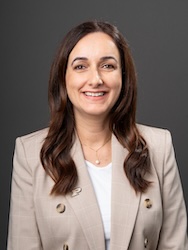
Joana Colussi has joined the Department of Agricultural Economics from the University of Illinois Urbana-Champaign, where she worked as an instructor and extension educator, and previously, as a postdoctoral researcher. Born and raised in Brazil, Colussi earned her bachelor’s degree in social communication from the Pontifical Catholic University of Rio Grande do Sul, as well as a master’s degree in agribusiness and a Ph.D. in business administration from the Federal University of Rio Grande do Sul. She joined academia following a 10-year career as an agricultural journalist in Brazil, during which she received several national and international awards for her work. Colussi’s research addresses farm management and production economics, with a focus on technology adoption and international agriculture. She analyzes the role of information in adopting digital technologies and the influence of weather forecasts on farm decision-making in both the United States and South America. Working as an extension educator with University of Illinois Urbana-Champaign’s farmdoc program for the past five years, Colussi has witnessed the transformative impact of extension programs in advancing agricultural education in the United States. Specifically, she has collaborated closely with key stakeholders in the Midwest, Brazil, Argentina and Paraguay. Her multidisciplinary expertise will be an asset in ensuring that Extension programs, such as the Purdue Center for Commercial Agriculture, remain relevant by effectively engaging diverse audiences and reinforcing Purdue Extension’s mission. In her free time, Colussi enjoys traveling, soccer games, good food and events with live music.
Jonathan Bauchet, Associate Professor, Agricultural Economics
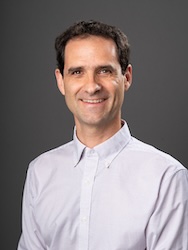
Jonathan Bauchet has fully transitioned into the Department of Agricultural Economics, having previously held a joint position between consumer science and agricultural economics. He was born and raised in France, and came to the U.S. to complete a master’s degree in sustainable international development from Brandeis University. After graduation, he spent three years managing research projects measuring the impacts of small loans for micro-entrepreneurs in South Africa and the Philippines. Bauchet earned his Ph.D. in public administration from New York University’s Wagner School of Public Service, where his dissertation examined life insurance demand among small entrepreneurs and low-income families in Mexico. His current research centers on helping low-resources households in developing countries build safe, productive and sustainable livelihoods. This work focuses on three main areas: improving agricultural risk management through microfinance, ensuring food safety for smallholder farmers in informal markets and evaluating payments for ecosystem services programs that promote equitable and efficient natural resource management. Bauchet is excited to start in this new role in the College of Agriculture and already feels like a member of the family.
Kyle Horton, Associate Professor, Forestry and Natural Resources
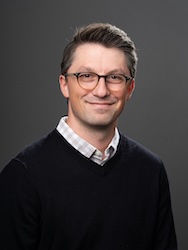
Kyle Horton came to the Department of Forestry and Natural Resources with expertise in ornithology, bird migration and aeroecology. He earned his bachelor’s in biology from Canisius College, master’s in wildlife ecology from the University of Delaware, Ph.D. in ecology and evolutionary biology from the University of Oklahoma, and completed a postdoctoral fellowship at the Cornell Lab of Ornithology. For the past six years, Horton was a faculty member at Colorado State University in the Department of Fish, Wildlife and Conservation Biology, where his research focused on bird migration using technologies such as radar, acoustics, bird banding, Radio Frequency Identification and community science data. Horton’s Aeroecology Lab explores key migration topics, including avian flight strategies, long-term phenological changes, population estimates and the impacts of artificial light and migration forecasting—offering publicly available forecasts each spring and fall. As aeroecologists, Horton and his team study how birds and other organisms use the airspace, one of Earth’s largest ecological habitats. He is excited to continue this work in the Midwest—a migration hotspot—and to collaborate across Purdue’s campus. Beyond the lab, Horton enjoys birdwatching, wildlife photography, traveling, spending time with his family, playing with his dogs and tackling home projects.
Lisa Mydy, Assistant Professor, Biochemistry
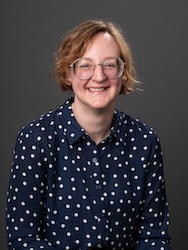
Lisa Mydy has joined the Department of Biochemistry with over 15 years of experience in structural biology and enzymology. She most recently served as a senior research fellow from the University of Michigan. Mydy earned her bachelor’s and Ph.D. in chemistry from the University of Wisconsin-Milwaukee, where she studied bacterial protein structure and function and uncovered an unexpected enzyme mechanism. She completed postdoctoral research at the University of Buffalo, focusing on pathogenic bacteria as a promising target for drug discovery and worked in industry as a senior scientist with Abbott Laboratories. Later at the University of Michigan, she expanded her expertise in plant biochemistry, integrating tools such as bioinformatics, proteomics, metabolomics, X-ray crystallography and enzyme kinetics. Her research spans bacterial, mammalian and plant proteins, and is characterized by interdisciplinary collaboration, teaching and mentorship. As a first-generation college student, Mydy never envisioned a career in science, but she has since developed a strong passion for discovering plant enzyme mechanisms and their potential applications for human health and agriculture. Beyond academia, she enjoys playing video games and reading non-fiction.
Megan Bourns, Clinical Assistant Professor of Soil Fertility and Plant Nutrient Management, Agronomy
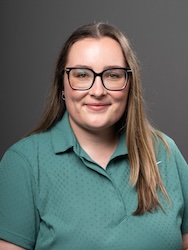
Megan Bourns, a recent addition to Purdue’s Department of Agronomy, holds a bachelor’s degree in agronomy and a master’s degree in soil science from the University of Manitoba, along with a Ph.D. in agronomy, specializing in soil fertility, from Kansas State University. With hands-on experience as an agronomist at the Manitoba Pulse and Soybean Growers, Bourns became passionate about finding agronomic management solutions working with farmers, through practical and applied on-farm research. Her Ph.D. research focused on improving the sustainability of phosphorus management for corn and soybean in Kansas, and her postdoctoral position at the University of Arkansas contributed to continued development of the Fertilizer Recommendation Support Tool. Her desire to continue working closely with farmers is part of what drew Bourns to Purdue. She is particularly excited about getting involved with the Purdue On the Farm program. Bourns is committed to better aligning agronomic, economic, and environmental nutrient management goals, believing that efficient soil fertility and crop nutrient management are a fundamental component of sustainable production. She aims to establish a soil fertility and crop nutrition research program that provides Indiana farmers with practical, timely solutions to fertility and nutrient management challenges. Outside of work, Bourns enjoys trying new recipes in the kitchen, spending time reading a good book and being outside with her dog.
Patnarin Benyathiar, Clinical Assistant Professor of Food Packaging, Food Science

Patnarin Benyathiar, clinical assistant professor of food packaging in Purdue’s Department of Food Science, has brought more than a decade of professional experience from complex, global food companies. She earned her bachelor’s degree in biology from Mahidol University in Bangkok, Thailand, and both her master’s and Ph.D. from the School of Packaging at Michigan State University. Since 2021, Benyathiar has served as assistant professor in the food technology department at Kanchanaburi campus, International School, and Institute of Nutrition, Mahidol University. At Purdue, she has been an instructor for specialized training and workshops, such as the Better Process Control School, Aseptic Processing and Packaging and Aseptic Food Processing Validation. Her extensive portfolio includes peer-reviewed publications, book chapters, a patent, grant writing, invited talks and conference presentations, reflecting her commitment to connecting academic innovation with industry needs. In recognition of her research excellence, she earned Mahidol University-Kanchanaburi’s highest scientific distinction, the Outstanding Researcher award, driven by her high number of published works in journals ranked in the top 25% by SIR. By integrating her deep industry expertise into her teaching, Benyathiar ensures students leave her classroom with the practical skills and global perspectives needed in the workplace. Beyond academia, she is the co-founder and managing director of ICE LLC, where she provides validation services for aseptic packaging and fillers and trains food processors worldwide.
William Scott, Research Assistant Professor of AI and Modeling in OneHealth, Agricultural and Biological Engineering
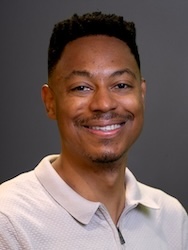
William Scott has joined the Agricultural and Biological Engineering department from Wageningen University and Research in the Netherlands, where he worked as a postdoctoral researcher. His research focuses on computational approaches to metabolic modeling, microbial ecology, and metabolic engineering, applying constraint-based modeling to study microbial community dynamics in various contexts, including gut health, food fermentation, bioremediation, and the bioproduction of high-value chemicals. As a postdoc, he developed FAIR data and modeling tools to better understand microbiomes as part of the UNLOCK infrastructure for microbial communities. In his spare time, Scott enjoys spending time with family, hiking, playing sports, and learning about global food traditions—often tying back to his work on fermentation and microbiomes.






